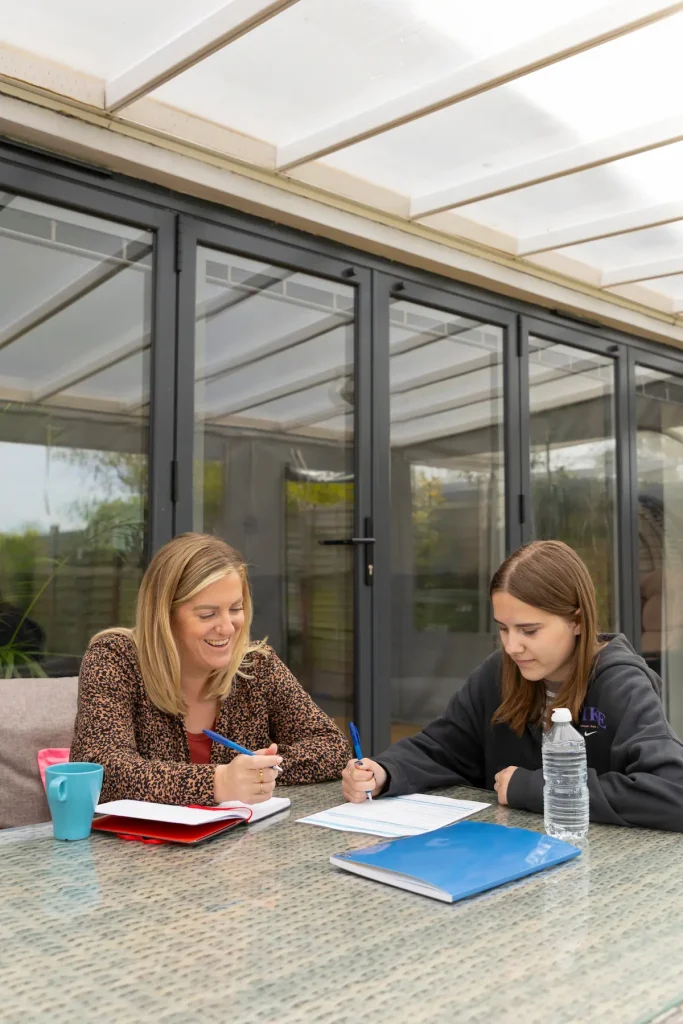Supported Lodgings Care
Supported Lodgings provides a vital bridge for young people aged 16 to 21 (and sometimes up to 25) who are leaving care, offering them a safe, supportive, and structured living environment as they develop the skills necessary for independent adulthood. There are many differences between Supported Lodgings and Fostering so it’s important to explore both types of care to see which may be most suitable for you to explore.

What is Supported Lodgings Care
Teaching important life skills
Supported Lodgings involves a young person living in the home of a selected host. The host provides not only a room but also emotional support, guidance, and encouragement as the young person navigates employment, education, and the development of essential life skills to prepare for independence. Lots of young people who leave care do not have the practical and emotional skills they need before they embark on adulthood – that’s where a Supported Lodgings host steps in to help teach them these important skills whilst supporting them emotionally. This includes:
- Getting into education, training, or work opportunities.
- Teaching them how to budget and manage their money.
- Helping their cooking and domestic skills, like cleaning and laundry.
- Building personal confidence, and supporting them to find a home when required.
- Attending appointments with them when required

Who is Supported Lodgings Care for?
Supporting those inbetween stages
This type of arrangement is for young people who are not quite ready to live entirely independently but no longer require full-time foster care. The duration of the care placement could vary from 6 months to 2 years, depending on the young person’s unique circumstances.
This scheme primarily supports:
- Young people in foster care who would like to transition to live independently
- Young people who first come into foster care at the age of 16.
- Young people at risk of homelessness.
- Unaccompanied Asylum-Seeking young people.

Who can become a Supported Lodgings Host?
Stable. Understanding. Nurturing.
We welcome individuals, couples, and families from all walks of life to become Supported Lodgings Hosts. You don’t need formal qualifications – what matters is your ability to provide the young person with a stable, understanding, and nurturing environment for them to develop so they feel confident to live independently. It is important that you have a spare room that can be the bedroom they call their own when they are in your care.

Key differences between Supported Lodgings and Fostering
Supporting those inbetween stages
If you’re considering providing care for a young person it’s important to consider the differences between Supported Lodgings and Fostering so you can decide which role may be most suited to your lifestyle and circumstances.
Unlike fostering, as a Supported Lodgings host:
- You can work full or part-time and pursue personal interests such as hobbies as the young person does not need such a high level of supervision. You can only continue to work with certain types of fostering.
- Young people are considered a member of your household, rather than a member of your family – but the impact you make is just as meaningful!
- You’ll be providing a stepping stone for a young person’s independence.

How we help our Supported Lodgings Hosts
Supporting those inbetween stages
Being a Supported Lodgings Host is a rewarding opportunity to make a real difference.
To help you achieve that, we provide:
Initial & Ongoing Training – We’ll make sure you’re equipped with all the skills you need to care for a young person. This consists of mandatory and optional ongoing training to continue your professional development.
Financial Support – Your weekly financial allowance consists of £224 for each young person you care for. This is to cover the costs of caring for the young person.
Continuous Professional & Peer Support – In addition to all our standard support offer, you’ll join our community of Supported Lodgings hosts and be able to attend peer support groups to share.

Fancy a chat?
Contact Us
Curious about supported lodgings, but not sure about your next steps?
Get in touch for a non-committal chat! We’re always happy to help with a simple question, or if you’re ready to get the ball rolling, we’re ready to welcome you.
We’d love to hear from you!
